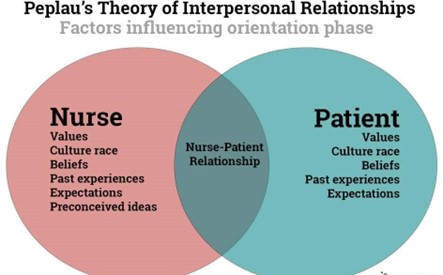A nurse is caring for a young adult client who has ulcerative colitis and is scheduled for surgery to create an ileostomy. After speaking with the provider, the client says, “how will I ever be able to have a normal life after this?”
Which of the following responses should the nurse make?
This will cure your disease, so you don’t have to spend so much time in hospital.
Tell me how you think having an ileostomy will affect your life.
Everybody worries about how they will manage their ileostomy at first.
Are you worried that it would affect your relationship with your partner?
The Correct Answer is B
This response is an open-ended question that encourages the client to express their concerns and feelings. It also allows the nurse to assess the client’s understanding of the procedure and provide appropriate education and support. The other
The other options are either closed-ended statements or questions that do not address the client’s concerns directly.

Nursing Test Bank
Naxlex Comprehensive Predictor Exams
Related Questions
Correct Answer is B
Explanation
Hildegard Peplau was a nursing theorist who promoted the interpersonal theory between patient and nurse. She believed that nursing is a therapeutic, interpersonal process that involves the development of a close and personal relationship between the nurse and the patient. According to her theory, the nurse should understand the patient's needs, feelings, and behaviors to develop a personalized care plan that would facilitate the patient's recovery.
Mary Mahoney was a nurse who broke racial barriers and became the first African American registered nurse in the United States.
Hattie Bessment was a nurse who promoted nursing education and research.
Linda Richards was the first professionally trained nurse in the United States and established the first nursing school in Japan.
While these nurses contributed significantly to the nursing profession, they did not specifically promote the interpersonal theory between patient and nurse.

Correct Answer is B
Explanation
This is because impaired nursing can have serious consequences for patients' safety and well-being, and it is your ethical and professional responsibility to take action to ensure patient safety.
Confronting the co-worker directly ( Option d) may not be the best approach, as it could lead to a confrontational situation and may not resolve the issue. Asking your co-worker to perform a sobriety test ( Option a) may also not be appropriate, as you may not be trained or authorized to administer such a test, and it may not be a reliable indicator of impairment. Ignoring the co-worker's behavior ( Option c) is not an appropriate action, as it could potentially harm patients and violate your ethical and professional responsibilities as a nurse.
Whether you are a student looking to ace your exams or a practicing nurse seeking to enhance your expertise , our nursing education contents will empower you with the confidence and competence to make a difference in the lives of patients and become a respected leader in the healthcare field.
Visit Naxlex, invest in your future and unlock endless possibilities with our unparalleled nursing education contents today
Report Wrong Answer on the Current Question
Do you disagree with the answer? If yes, what is your expected answer? Explain.
Kindly be descriptive with the issue you are facing.
